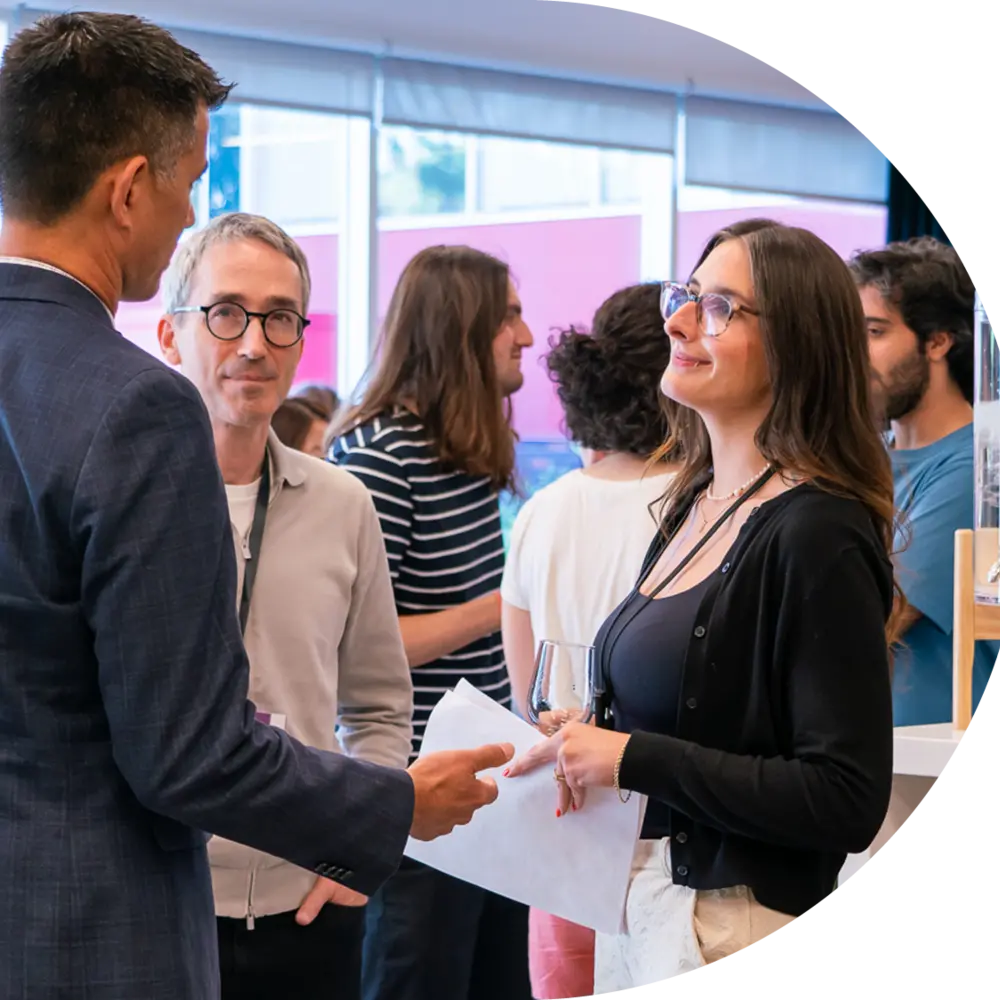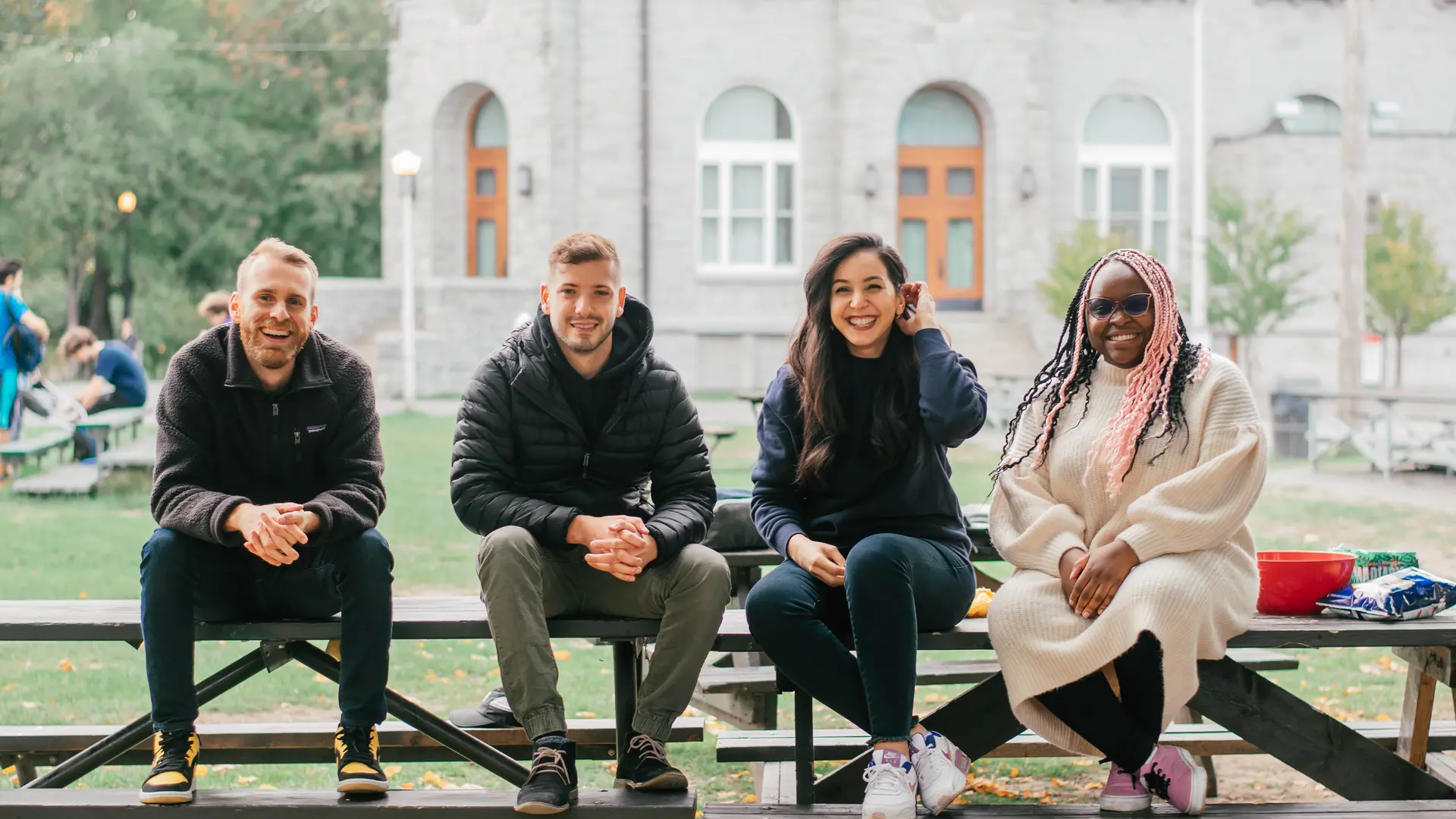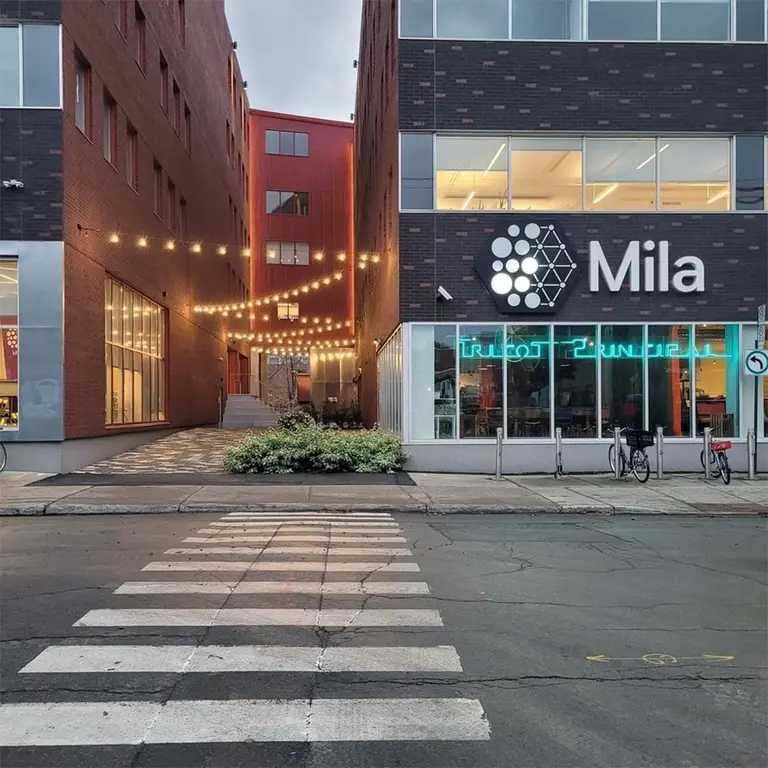Partnerships
Organizations with machine learning capabilities can find great value in entering Mila’s partnership program.
Organizations with machine learning capabilities can find great value in entering Mila’s partnership program.

Mila distinguishes itself by the impressive achievements of its researchers and the in-depth expertise of its technology and applied artificial intelligence (AI) teams of experts. Through a unique collaborative structure, Mila delivers tools that meet the needs of organizations building their AI capacity.
Interested in learning more about partnership opportunities?

Interview with Stéphane Létourneau, Executive Vice-President of Mila
+120
Mila hosts more than 120 industry partners in its ecosystem, including more than 30 Mila startups.
+75
Of those 120+ industry partners, more than 75 are Canadian.
+60
Over the past year, more than 60 students from Mila have completed internships in industry.
Our industry partners are leveraging Mila’s extraordinary talent pool to further develop their AI capacities and expertise. Our partnerships program is designed to help them meet their biggest challenges.

Our partners closely work with Mila professors and their students on innovative, high-impact projects grounded in open science.
Examples of research topics

In 2023, Nolinor and Mila launched a collaborative AI adoption project to automate large portions of the aviation safety reporting and investigation process, in order to assist human investigators and allow them to focus their expertise where it truly matters.

Maket, a Mila partner organization, is on a mission to democratize architecture, allowing anyone to design and plan their new construction or renovation project without the need for expensive, specialized knowledge or tools.

At the intersection of technology and music, LUCID is a Mila partner organization specializing in the use of AI and music to enhance mental health and well-being.
Professors Blake Richards (McGill/Mila) and Guillaume Lajoie (UdeM/Mila) are working closely with BIOS Health, a biomedical company whose goal is to optimize, automate, and personalize the treatment of chronic heart conditions through neural interfaces. Partners since 2019, BIOS and Mila researchers are bringing together their brightest minds to develop a closed-loop neuromodulation system using AI.
By leveraging state-of-the-art meta-learning, BrainBox AI and David Rolnick (McGill/Mila) are working together to reduce the amount of data needed to train the company's globally deployed AI algorithms. Specifically, this collaboration will result in the development of a neural network that is “conscious” of the components of a new building and capable of deploying its intelligence in similar buildings. These efforts will enable BrainBox AI to implement an accelerated learning process to benefit AI-built environments.
Professor Christopher Pal (Polytechnique/Mila) is working with Algolux to develop a car simulator to accelerate research on planning and decision-making in autonomous driving. Their recent collaboration produced latent variable sequential set transformers that predict the future evolution of real-world multi-agent scenarios. Equipped with these models, the simulator can generate new plausible scenarios of interactions between multiple agents. The result of this collaboration will facilitate research on reinforcement learning and planning algorithms for self-driving cars or sidewalk robots.
Mila introduced additional privileges to meet the needs of its startup partners.
Many of our startup partners were founded by Mila research students.
